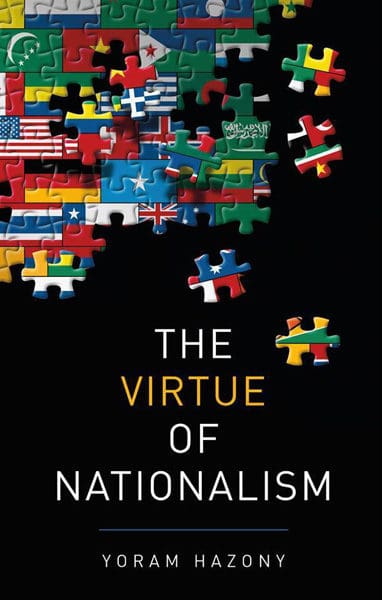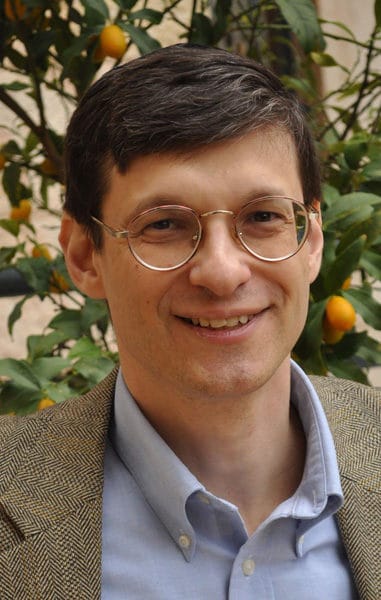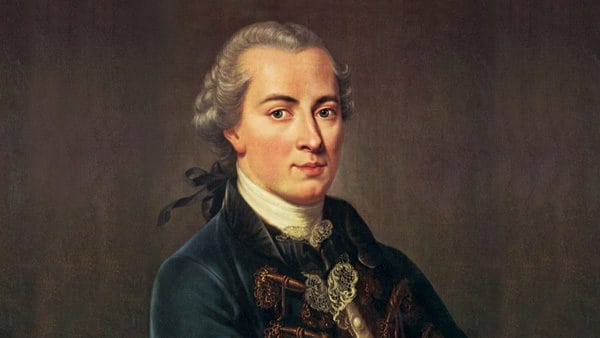Defending Nationalism
John Jackson, American Renaissance, May 24, 2019

Yoram Hazony, The Virtue of Nationalism, Basic Books, 2018, $20.40, 304 pages.
Political theorist and Bible scholar Yoram Hazony has written an accessible and compelling book in defense of nationalism. As an Israeli Jew, Dr. Hazony grew up in an environment in which nationalism was taken for granted, and he sees no reason why it should elicit horror. His book downplays race and ethnicity, but it is still a valuable contribution to the literature on nationalism.

Dr. Hazony defines nationalism in opposition to imperialism. It defends nations as legitimate political entities that should generally be allowed to determine their own path. Imperialism promotes a transnational system in which organizations acting in the name of a larger group usurp much of the sovereignty that nations have traditionally enjoyed. Dr. Hazony considers terms like “globalization” and “liberal internationalism” to be euphemisms for imperialism (5). He dedicates his first several chapters to the history of the two opposing frameworks, and explains how nationalism became anathema and imperialism the norm.
Dr. Hazony argues that the Allies won the Second World War through appeals to national patriotism, even in the case of the nominally internationalist Soviet Union, while German expansionism was an example of imperialism. He thus finds it baffling that Western authorities moved immediately to demonize nationalism, blaming it for the conflict and promoting its opposite.
Dr. Hazony distances himself from the idea that nationality depends on race or biology. Still, he defines a nation as “a number of tribes with a common language or religion, and a past history of acting as a body for the common defense and other large-scale enterprises” (20). He cites Old Testament examples of individuals of different ethnic origins being accepted into the nation of Israel to support the idea that ancient Israelites thought the nation had “nothing to do with biology” (20).
Dr. Hazony nevertheless rejects the idea of a “neutral or civic state;” abstract concepts are an insufficient basis for a cohesive society (156). Although there may be a sense of loyalty and sacredness attached to a document such as the Constitution, this arises only through “the customs of the family, clan, tribe and nation.” In most cases, these customs must be absorbed in childhood from older generations (158), so ancestry is important for national identity.
Dr. Hazony further critiques the idea of a “neutral state” when he compares successful to less successful states. Many Middle Eastern and African states today have boundaries drawn by European colonial powers that ignore tribal differences among the inhabitants. As a result, tribes may lack national identity and mutual loyalty; they struggle for power, leading to despotism and civil war.

Yoram Hazony
Western states have enjoyed greater stability and “individual rights and liberties” because of “the overwhelming dominance of a single nationality” (161). Dr. Hazony argues that although there is no need for perfect homogeneity, a stable and free society requires “a majority nation whose cultural dominance is plain and unquestioned, and against which resistance appears to be futile” (165). He says this model explains Israel’s success in comparison with other Middle Eastern states.
This book quotes anti-nationalist thinkers to illustrate the imperialist mindset. Konrad Adenauer, the first post-war prime minister of Germany, promoted the idea of a European union in his book World Indivisible with Liberty and Justice for All:
The age of national states has come to an end . . . . We in Europe must break ourselves of the habit of thinking in terms of national states. . . . If the idea of European community should survive for 50 years, there will never again be a European war (40).
Immanuel Kant had a similar idea 150 years earlier. In 1795, he proposed merging nations into a single “international state,” and like Adenauer believed this would prevent war. As he put it in Perpetual Peace: A Philosophical Sketch,
We look with profound contempt upon the way in which savages cling to their lawless freedom. They would rather engage in incessant strife than to submit to legal constraint . . . . We might thus expect civilized peoples, each united within itself as a [national] state, would hasten to abandon so degrading a condition as soon as possible. But instead of doing so, each state sees its own majesty . . . precisely in not having to submit to any external legal constraint, and the glory of its ruler consist in his power to order thousands of people to immolate themselves (198-199).
Kant believed there was “only one rational way” for nations:
They must renounce their savage and lawless freedom, adapt themselves to public coercive laws, and thus form an international state, which would necessarily continue to grow until it embraced all the people of the earth (199).

Immanuel Kant
Although he opposes this imperialist vision, Dr. Hazony argues that nations do not have unlimited rights to self-determination. Many smaller groups might argue that they are nations because of distinguishing characteristics such as language; Dr. Hazony notes that 1,700 languages are spoken in India and 700 in Indonesia. Granting independence to all these groups could lead to the tribal conflict from which nation-states were a refuge.
The author does, however, support redrawing borders and even creating new nation-states by breaking up existing ones along ethnic lines. He thinks this is justified only in extreme cases, such as Syria, Iraq, the Democratic Republic of the Congo, and Bosnia, all of which have a history of civil war along tribal or ethnic lines.
It is not clear why Dr. Hazony avoids the genetic aspect of national identity. Genetic differences should be particularly relevant to Jews because of their history as a diaspora people. This has put them in conflict with other groups and has encouraged a strong group identity. Although partly based on religion, Jewish identity is also based on blood, since Jews traditionally believe that a child born to a Jewish mother is a Jew, regardless of other factors.

An elderly Palestinian man watches as Dance of Flags participants celebrate Jerusalem Day making their way from downtown Jerusalem through the Damascus Gate and the Muslim Quarter to the Western Wall. (Credit Image: © Nir Alon/ZUMA Wire)
Further, as a Jew living in Israel, Dr. Hazony must have noticed differences in psychological and intellectual traits between the Jewish majority and the large Arab minority. However, he is offended by the suggestion that less can be expected from Arabs or other Muslims in terms of their respect for Western norms.
Dr. Hazony argues that Europeans have a double standard for judging Israeli actions in comparison to those of Muslim states. He writes that they are especially offended at alleged Israeli atrocities and aggression because they see Israelis as part of their own group. He quotes the Danish ambassador to Israel:
I think Israel should insist . . . [t]hat we apply double standards. This is because you are one of us . . . . ‘Look what’s going on in Syria. Look what’s going on elsewhere.’ Those are not the standards that you are being judged by. . . . I think you have the right to insist that we apply double standards, and put you to the same standards as all the rest of the countries in the European context (214).
Dr. Hazony thinks that expecting different standards of morality from different nations is “shocking condescension, on the border of racism” (213). However, Muslim nations have lower average IQs, with an overall average of 81, compared to Israel’s average in the mid-90s. Muslim nations also have a much younger population; the average resident of Gaza is only 17 years old while the average Israeli is 30. A younger, less intelligent population will be more belligerent and less able to follow established rules of war.
One of Dr. Hazony’s criticisms of imperialism is that an imperial state will inevitably be dominated by a particular family, tribe or national group. This group will serve the interests of its own kind. Although Dr. Hazony would not put it in these terms, this type of tribalism inevitably makes diverse societies more prone to conflict.
This book has been praised by both supporters and opponents of nationalism, including major mainstream media such as National Review and Foreign Affairs as well as the more heterodox Australian outlet Quillette and the white nationalist site Counter-Currents. Regardless of one’s position on this issue, this book is a thoughtful treatment of the ongoing conflict between nationalism and globalism.















